


















Pandox Hotel Properties has an impressive portfolio of 157 hotels and approximately 35,000 hotel rooms across 11 countries. The Swedish company is now infusing sustainable policies throughout every branch of these directly run and leased enterprises. Senior Vice President, Director of Sustainable Business, Caroline Tivéus explained to Hannah Barnett how the business has adopted a structured approach to sustainability.
hen Pandox Hotel Properties launched a green investment programme in 2019, it was a watershed moment. The scheme was the first of its kind to earmark Capex specifically for energy- and watersaving projects, while also establishing sustainable targets.
Goals included the reduction of gas and water by 35% and 20% respectively, plus a 20% reduction in CO2 emissions. The total investment of €8 million covered 12 properties in the portfolio.
“For me, results are only possible by measuring and analysing the data,” said Caroline Tivéus, Senior Vice President,

Director of Sustainable Business. “Our programmes in own operation have been a learning hub around sustainability. We also managed to achieve over 20 per cent ROI, which was very important to show the executive management that sustainability is not just a nice add on but should be integrated as part of the business.”
The company’s biggest markets are Sweden, Germany, the UK, Belgium and Finland. Pandox has a property portfolio of €6.02 billion with 84% of this market value derived from leases and 16% from operations. Total revenue year to date amounts to approximately €286 million, which is an 8% increase YoY.
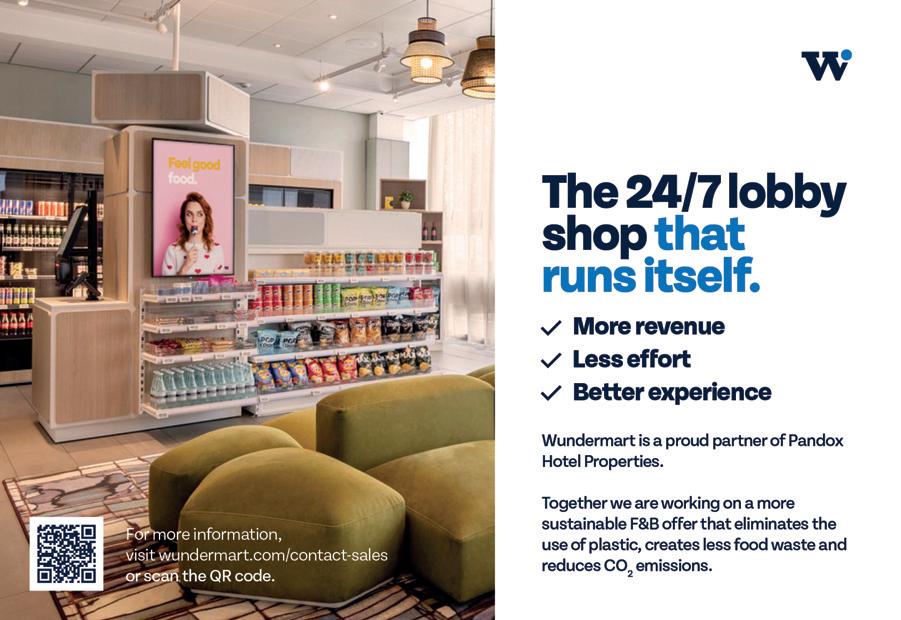


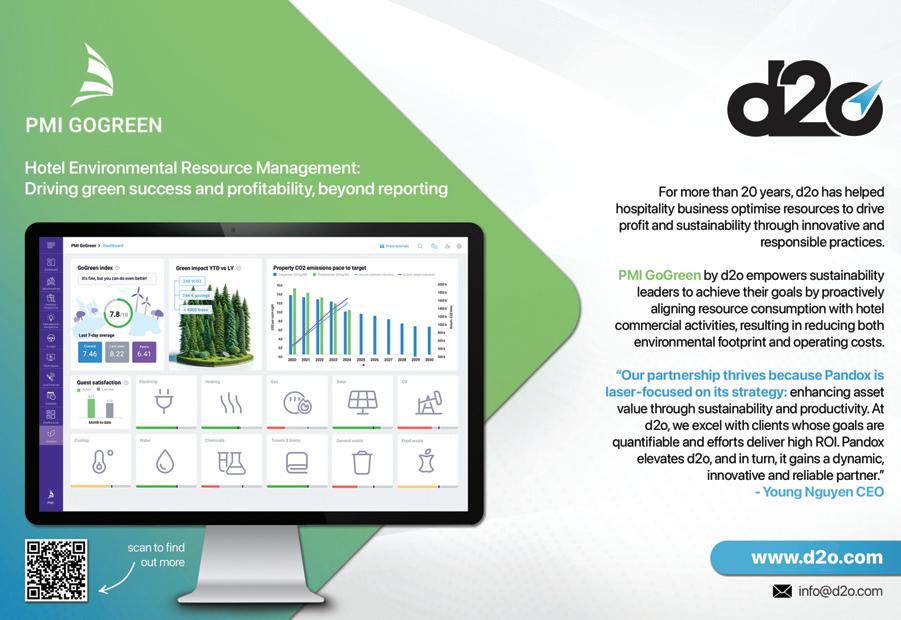
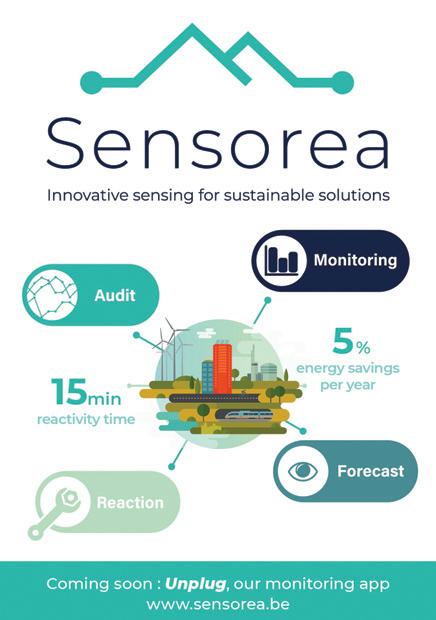

Pandox’s partnership with PMI GoGreen by d2o exemplifies how sustainability can be both simple and profitable. Since implementing PMI GoGreen, Pandox has significantly reduced its environmental footprint across the European hotel portfolio. The PMI GoGreen platform promotes transparency, tracks progress towards sustainability goals and shares best practices supporting Pandox to effectively reduce CO2 emissions, manage water consumption and cut food waste. Pandox’s remarkable achievements demonstrate that going green is a smart and impactful business decision.
editorial mention
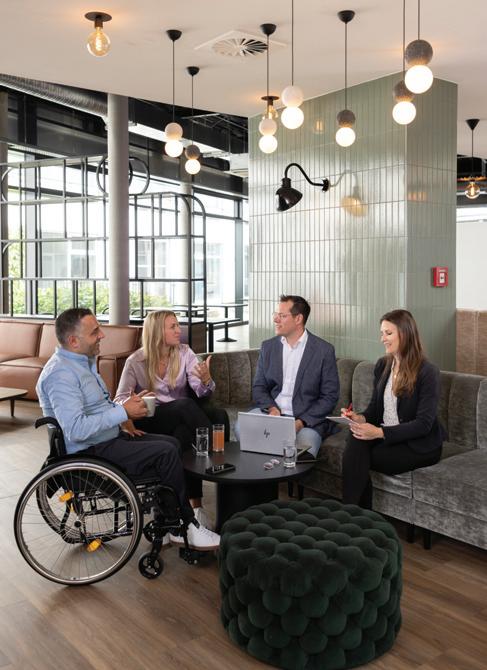
The sustainable North Star
Having begun its sustainability journey, Pandox was able to truly hone its direction with the approval of science-based targets in 2023.
These included a full portfolio of emissions and another green investment programme, this time of €29 million. The scheme, signed off by the Board of Directors, focuses on Scope 1 and 2 emissions and is due to be completed by 2030. The goal is to reduce emissions by 42% and save €3 million
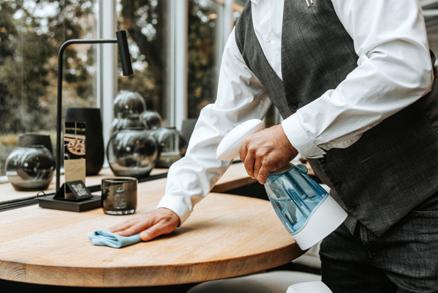
annually, reaching the SBTi-validated emission targets for Own Operations.
“Science-based targets are our North Star,” said Ms Tivéus, “We know our emissions, and where they come from, because we have done energy audits in every property which together with SBTi’s guidelines help us prioritise what needs to be done. Our targets are also approved by the SBTi. Without data, sustainability is just marketing, and everyone has an opinion.”
The plans include upgrading and replacing obsolete technical systems, as well as increased renewable energy use and behavioural change.
“We are following new technologies closely and are right now investigating combining solar panels with battery solutions, because we think the market is ready for that,” Ms Tivéus explained.
The next step for Pandox is a Scope 3 programme to reduce CO2 emissions by 25%, which includes all energy consumption at its leases. For renovation projects, sustainable material choices will be made, including reusing materials and reducing waste. A project has also been launched to upgrade bathrooms – one of the most common renovations for Pandox. Between 2023 and 2026, around 600 bathrooms will be upgraded for Scandic Hotels, one of the company’s biggest tenants. The goal is to reduce emissions without compromising on guest comfort, design aesthetics or operating costs.
The company has also started using sustainably linked bank loans, amounting to approximately 2.2 billion Swedish Krona.

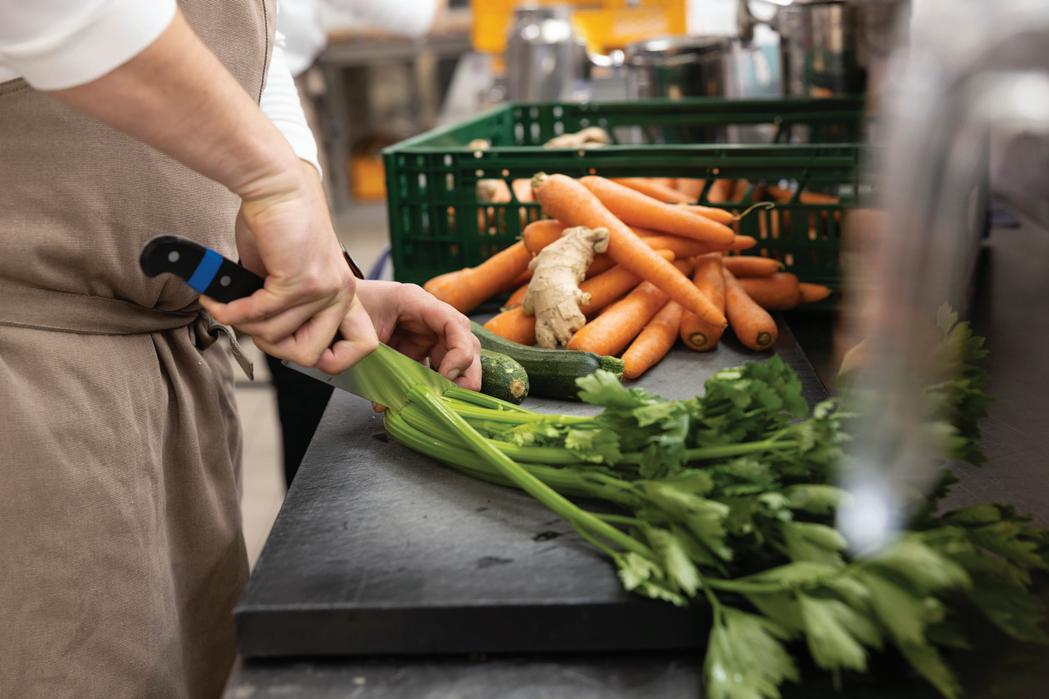
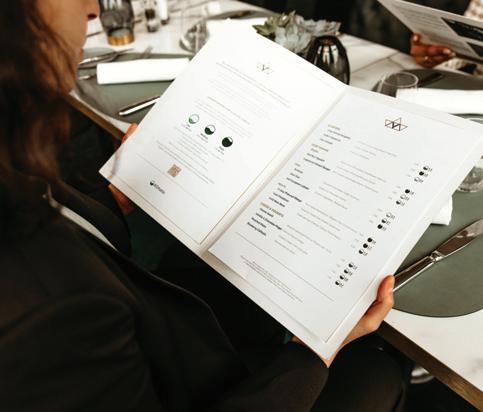
Social sustainability forms a key part of Pandox’s targets, and the company has an extensive programme of diversity and inclusion. Of the 138 lease properties in the Pandox portfolio, which includes operators like Hilton and Radisson, the need to be flexible is paramount.

One of the social projects Pandox supports relates to targeted community involvement and Socially Marginalised Groups for all of the 19 Pandox-owned and -operated properties.
“There are different needs in different markets,” said Ms Tivéus. “So, we don’t want to steer this target too much, it’s better that each hotel decides what makes sense for the area it is in. But I do think it’s important for a business to be part of the community and give away time as well as money.”
By working with PMI GoGreen, the company is also investigating behavioural change. The PMI software enables hospitality groups to achieve environmental goals by breaking them down into monthly targets tailored to each property’s attributes and seasonal variations.
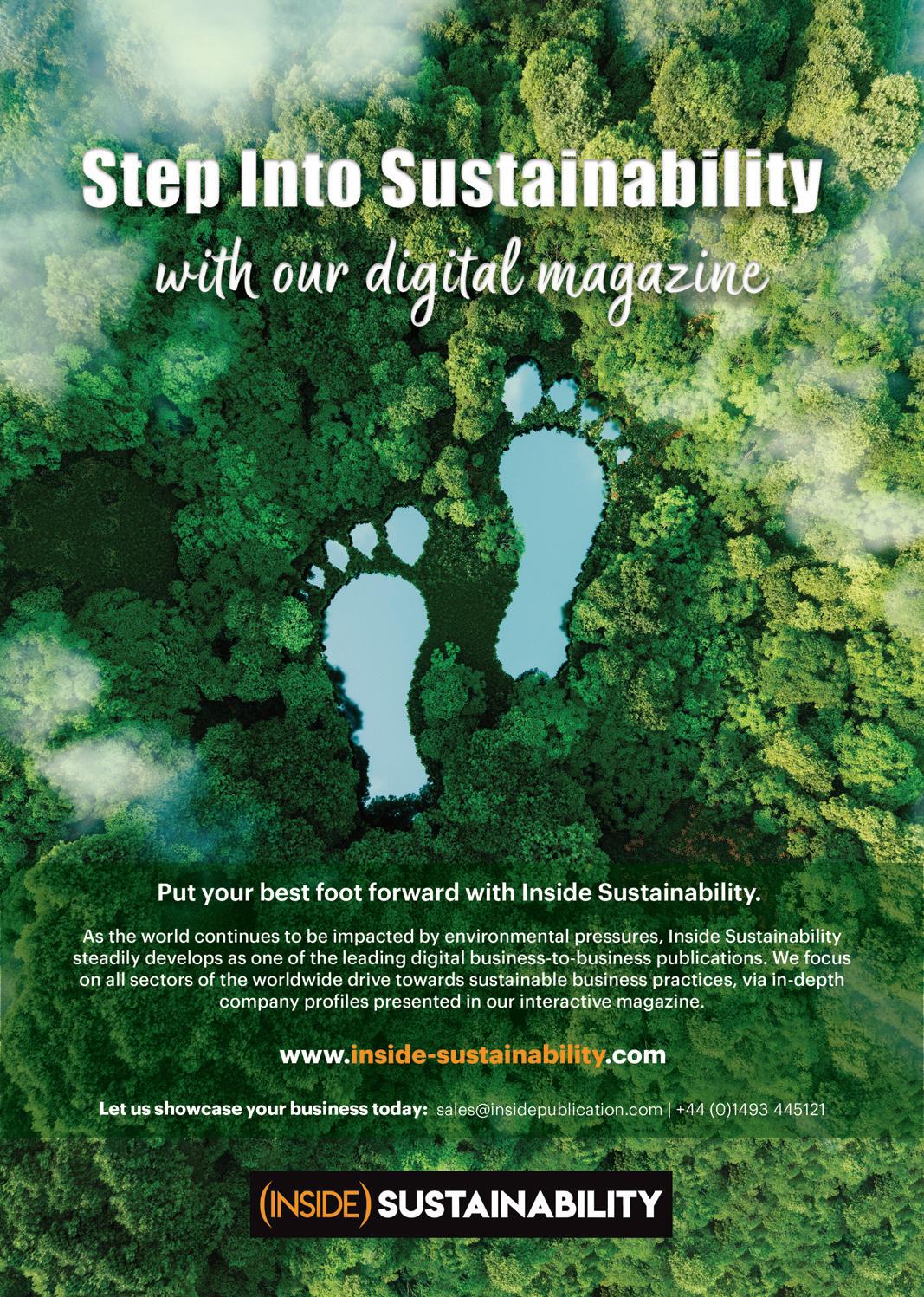
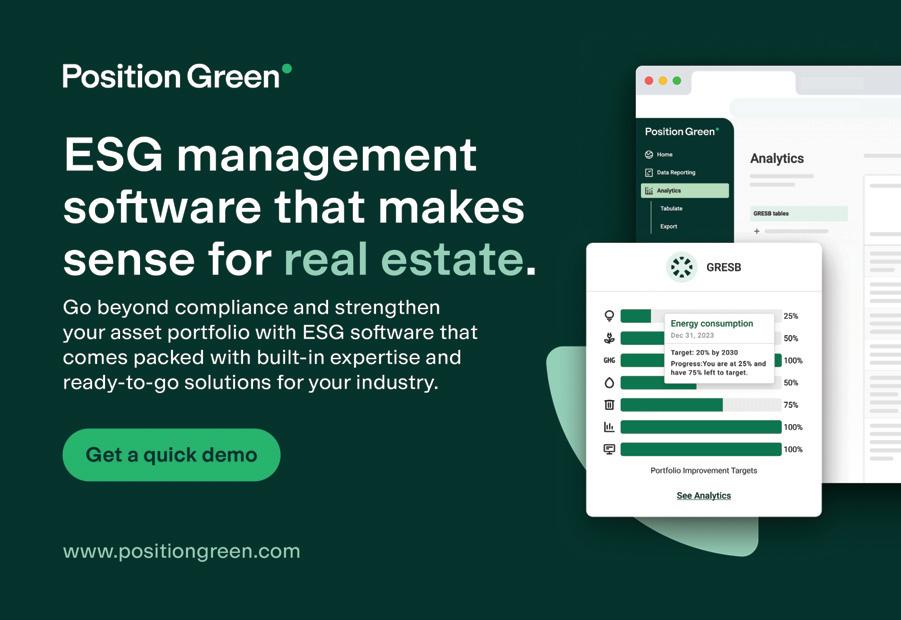


Pandox implemented a six-category green module in the existing PMI system consisting of water, energy, waste, food waste, towels and linen, and chemicals, with an index ranging from 1-10. Each hotel’s GM needs to score an eight or above and the index is linked to 20% of their bonus.
“It’s so important that people adapt to the goals and change behaviour,” explained Ms Tivéus. “Sustainability is not always the number one priority when running a hotel –it is a very demanding line of work. So, we needed to find a way that the GM of each hotel looks at this info every day, alongside the sales covers, the occupancy rates and all the other data they have in their phone.”
At its hotel Hubert in Brussels, the company achieved a 15% water savings with almost no investments only by fixing toilet leaks, tuning tap flowrate and replacing failing showerheads, in line with PMI targets for water consumption.
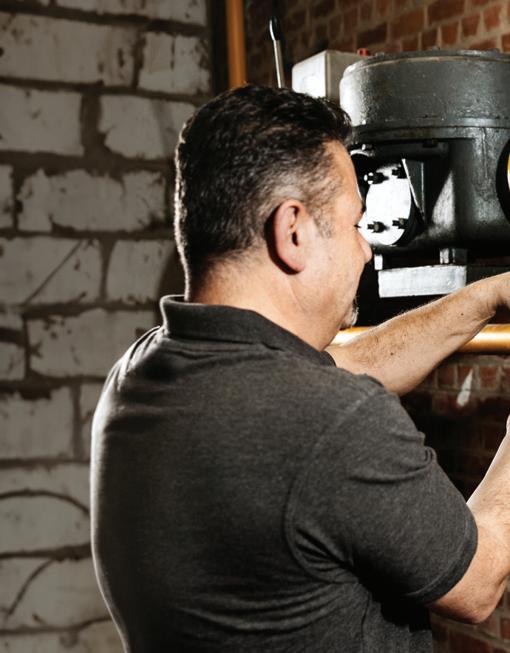
Pandox prizes collaboration with partners and suppliers as key to its sustainability journey. “But we need to find new ways of working together,” said Ms Tivéus. “We have long-term relationships, some from 15 to 25 years ago, but with new
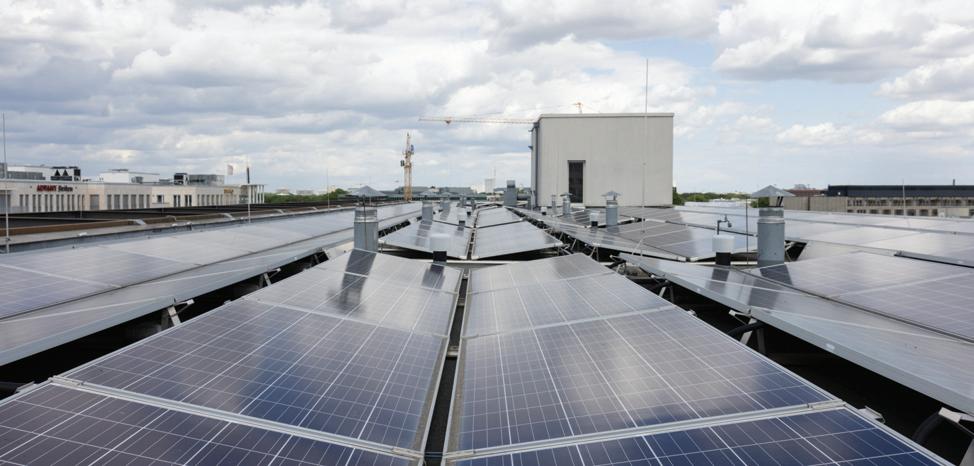

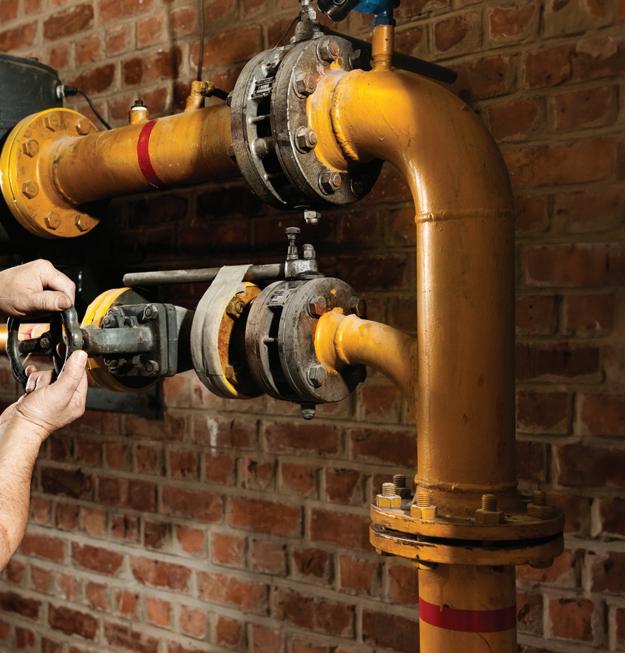
regulations we need to also introduce green amendments in contracts.”
The company works with strategic energy consultants Sensorera and gets all its energy data directly from energy suppliers Mestro. At its Stockholm HQ, Pandox uses Position Green software for its sustainable reporting system. The company has worked with Klimato to design climate-labelled menus, which will be introduced into 16 hotels by the end of 2024. Pandox collaborates with key partners including Hilton Supply Management and Watts-ON Consultants, who both play an important part in achieving s ustainability within the company.
“It’s important that we work with bestin-class solutions and that we grow with the supplier,” Ms Tivéus reflected. “Because currently, it’s a gold rush. Start-ups don’t always have the financial muscles to scaleup, or they offer a solution that will solve one problem but might create another. So, when we work with start-up suppliers,
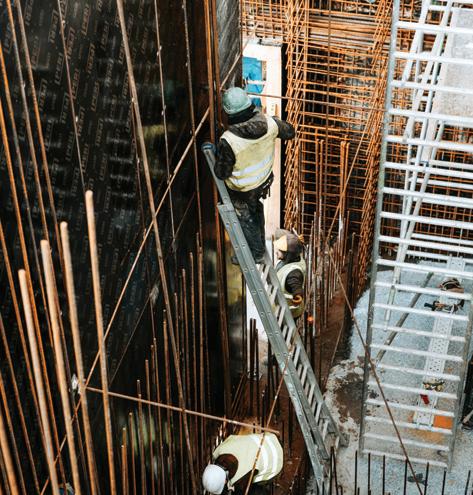
we look for those with the potential to scale-up.”
Despite being a large company, Pandox is also a lean organisation, with a quick decision-making process. It maintains an entrepreneurial spirit, free from bureaucratic layers, which sets the company in good stead to continue to innovate in its sector. As a result, Ms Tivéus remains confident that the future will be a data-driven one, for both the company and the industry.
“Legislation and governance are important, because they can help other companies to push towards change,” she concluded. “Legislation can help facilitate an organisation to start working with sustainability in a much more professional way and put together a Capex strategy. When I talk with counterparts in the industry, I hear how hard it is to incorporate Capex, but legislation will be the enabler to make the necessary change happen.” n


